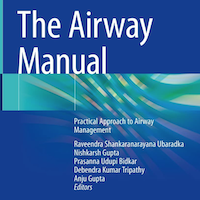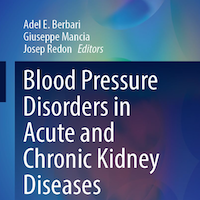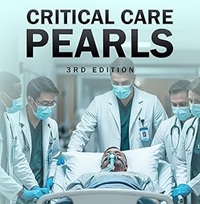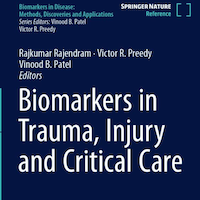Tag: hydrocortisone
Beyond the Pressure: Moving Toward Personalized Sepsis Care
In the high-stakes environment of septic shock, the current clinical "gold standard" remains the early initiation of norepinephrine. However, when blood pressure targets aren't met, the next steps often become a pragmatic... read more
Postoperative Steroids Linked to Longer Time on Ventilator
Postoperative use of systemic corticosteroids was linked to a longer duration of mechanical ventilation (MV), but it did not increase mortality or overall complications. While the study's initial analysis did not show... read more
Holy Water Not so Holy: Potential Source of Elizabethkingia Pneumonia and Bacteremia in an Immunocompromised Host
This case report highlights that E. anophelis may indeed cause significant infection and should not be considered a contaminant especially in immunosuppressed individuals. The organism originates from water sources and may... read more
Methylprednisolone vs. Hydrocortisone in Septic Shock Patients
Corticosteroids play an important role in the management of septic shock patients, especially in those with higher doses of vasopressor. However, the therapeutic benefits of corticosteroids are not limited to hydrocortisone... read more
Multidisciplinary Approaches and Molecular Diagnostics in New-Onset Refractory Status Epilepticus and Nontuberculous Mycobacterial CNS Infections in the ICU
The diagnosis and management of complex neurological conditions such as New-Onset Refractory Status Epilepticus (NORSE) and central nervous system (CNS) infections caused by non-tuberculous mycobacteria (NTM) pose substantial... read more
Corticosteroid Therapy and Pulmonary Embolism in Polytrauma Patients
Pulmonary embolism is a frequent complication in polytrauma patients. The aim of our study was to evaluate the effect of low-dose corticosteroid therapy on the incidence of pulmonary embolism (PE) in polytrauma patients.... read more

Predictors of Functional Impairment in Severe COVID-19 Patients Two Months After Discharge
The Post-COVID-19 Functional Status (PCFS) scale is a validated tool for assessing functional impairment in COVID-19 patients. While this retrospective monocentric study identified multiple risk factors associated with... read more
Effectiveness of Fludrocortisone and Hydrocortisone vs. Hydrocortisone Alone in Septic Shock
Steroid use in sepsis is controversial. For example, fludrocortisone–hydrocortisone together may improve survival in septic shock, while hydrocortisone alone may not. A recent subgroup analysis of the APROCCHSS trial... read more
Hydrocortisone, Ascorbic Acid, and Thiamine Combination Therapy Efficacy for the Management of Sepsis and Septic Shock
In this systematic review, we found that hydrocortisone, ascorbic acid, and thiamine (HAT) regimen may be useful for reducing the duration of vasopressor use and improve organ functions in patients with sepsis and septic... read more
Regular Old Pneumonia Treatment Just Got Better
In 2020, COVID-19 pneumonia became so common that "old-fashioned" bacterial pneumonia suddenly seemed rare. They look very different on x-ray. See if you can spot the differences. A new study from France tipped the scales... read more
Hydrocortisone in Severe Community-Acquired Pneumonia
Among patients with severe community-acquired pneumonia being treated in the ICU, those who received hydrocortisone had a lower risk of death by day 28 than those who received placebo. A total of 800 patients had undergone... read more
Sepsis is scurvy? Vitamin C, Thiamine, and Steroids
I have avoided commenting on vitamin C for sepsis, because commentary seemed rather unnecessary. The hype was obviously ridiculous. The chances of it helping were clearly low. The evidence of benefit was negligible. Others... read more
Pharmacological principles guiding prolonged glucocorticoid treatment in ARDS
Current literature addressing the pharmacological principles guiding glucocorticoid (GC) administration in ARDS is scant. This paucity of information may have led to the heterogeneity of treatment protocols and misinterpretation... read more
External Corroboration That Corticosteroids May Be Harmful to Septic Shock Endotype A Patients
This exploratory analysis provides further evidence that corticosteroid exposure may be associated with increased mortality among septic shock endotype A patients. We previously reported gene expression-based endotypes... read more
Effect of Hydrocortisone on Mortality and Organ Support in Patients with Severe COVID-19
Among patients with severe COVID-19, treatment with a 7-day fixed-dose course of hydrocortisone or shock-dependent dosing of hydrocortisone, compared with no hydrocortisone, resulted in 93% and 80% probabilities of superiority... read more
Cost Analysis of Adjunctive Hydrocortisone Therapy for Septic Shock
Using adjunctive hydrocortisone therapy yields a significant monetized benefit based on inputs from the Adjunctive Corticosteroid Treatment in Critically Ill Patients with Septic Shock and Activated Protein C and Corticosteroids... read more
Hydrocortisone Prevents Immunosuppression by interleukin-10+ Natural Killer Cells After Trauma-Hemorrhage
These data demonstrate that trauma-induced immunosuppression is characterized by an interleukin-10-dependent elimination of dendritic cell by natural killer cells and that hydrocortisone improves outcome by limiting this... read more
Effect of Vitamin C and Thiamine on Time Alive and Free of Vasopressor Support Among Patients With Septic Shock
A 2020 randomized trial reported no difference in duration of time alive and free of vasopressor administration at 7 days among intensive care unit (ICU) patients with septic shock assigned to vitamin C, thiamine, and hydrocortisone... read more
Wide Interest in a Vitamin C Drug Cocktail for Sepsis Despite Lagging Evidence
Critical care medicine specialist Paul Marik, MD, has described himself as a status quo destabilizer, and probably nothing illustrates that designation better than the sepsis treatment known as the Marik protocol. In the... read more
Effect of Vitamin C, Hydrocortisone, and Thiamine vs Hydrocortisone Alone on Time Alive and Free of Vasopressor Support Among Patients With Septic Shock
In patients with septic shock, treatment with intravenous vitamin C, hydrocortisone, and thiamine, compared with intravenous hydrocortisone alone, did not significantly improve the duration of time alive and free of vasopressor... read more
Heterogeneity of Treatment Effect by Baseline Risk of Mortality in Critically ill Patients
Randomised controlled trials (RCTs) enrolling patients with sepsis or acute respiratory distress syndrome (ARDS) generate heterogeneous trial populations. Non-random variation in the treatment effect of an intervention due... read more
Septic Shock: Innovative Treatment Options in the Wings
Vitamin C, angiotensin-II, and methylene blue are emerging options on the cutting edge of refractory septic shock treatment that require more investigation, but nevertheless appear promising, Rishi Rattan, MD, said at the... read more









